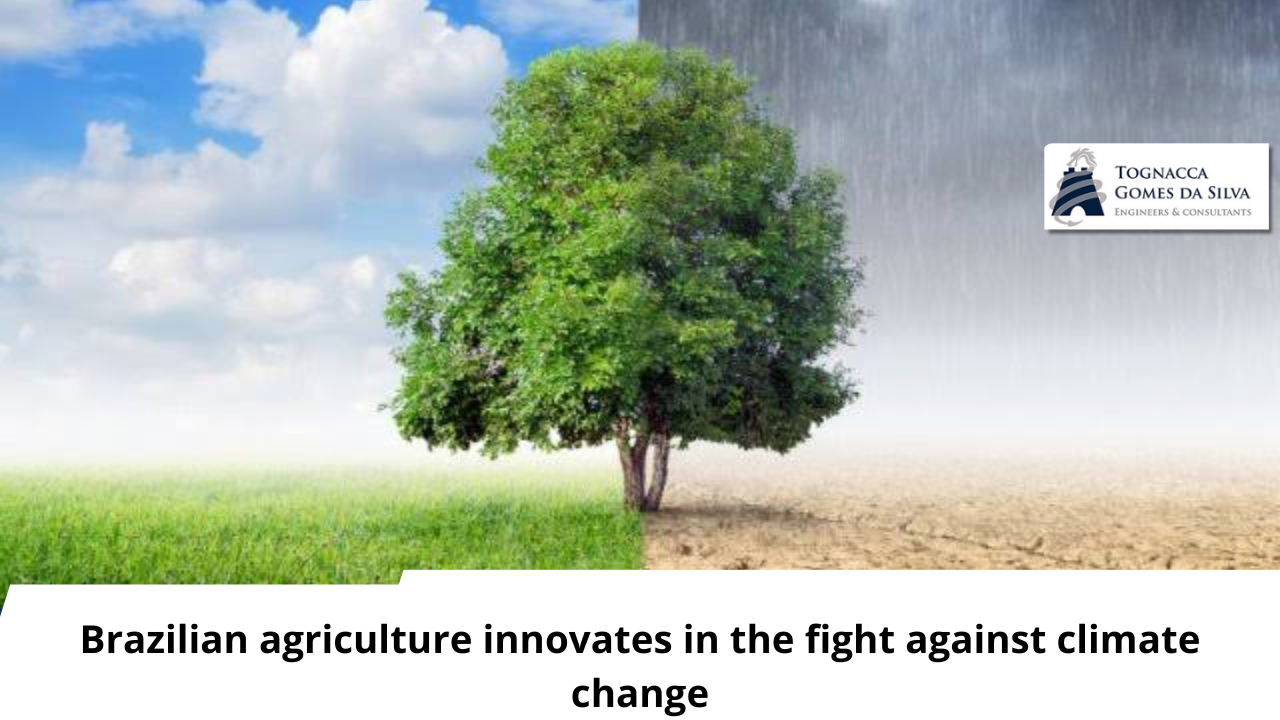Carbon reduction is not the only alternative in combating climate change.
Combating climate change is commonly related to reducing carbon in the atmosphere. This exclusive focus on reducing greenhouse gas emissions is called “Carbon Tunnel Vision”. However, despite being an important responsibility of modern society, reducing CO2 is not the only alternative.
In this context, Brazil emerges as a notable example of how science and technology can transcend this restricted vision, promoting agriculture that not only nourishes a growing population, but also protects, preserves and conserves the environment.
Over the last fifty years, Brazil has stood out as an innovative country in Agrotech. Thus, the country underwent a remarkable transformation and went from being predominantly an importer to an exporter of food. Therefore, it is often referred to as the “breadbasket of the world”. Thus, with a resilient productive force, it triggered an era of innovation in tropical agriculture through a collective collaboration between Embrapa (Brazilian Agricultural Research Corporation), rural extension agencies and universities.
How Agrotech can help combat climate change
Some agricultural technologies and practices made this remarkable transformation possible, helping Brazil to stand out as a leader in agricultural and sustainable production:
By reducing erosion and the consumption of fossil fuels, the SPD (Direct Planting System) protects the soil, cycles nutrients and improves the carbon balance in production systems. Its technological peak is the use of intercropped crops, such as Crop-Livestock-Forest Integration (ILPF).
A consolidated technology for legumes and highly promising for grasses is biological nitrogen fixation, which saves energy and reduces the need for synthetic fertilizers. Thus, it reduces greenhouse gas emissions and can work to combat climate change.
Recovering degraded areas can optimize the use of depleted lands with low production rates and low chemical, physical and biological fertility. In this sense, recovering these areas can help promote carbon sequestration and protect biodiversity, reducing the pressure for new deforestation
Genetic improvement provided rural producers with herds and crops that were more resistant and adapted to the tropical climate. This alternative, in addition to increasing productivity, reduces the need to adapt the location to production. Thus, production adapts to the location, which mitigates the environmental impact.
By helping farmers make informed decisions based on multidisciplinary data, Strategic Territorial Intelligence reduces agronomic losses due to biotic and abiotic effects, in addition to avoiding a drop in competitiveness due to a lack of logistics. Thus, innovations such as the combination of GIS and GPS in agriculture can also help combat climate change.
Ultimately, acting as carbon sinks, well-managed crops, forests and pastures sequester CO2. In this way, they offset emissions from other sources.
Opportunity to be an example in the fight against climate change
Brazil has the opportunity to become a global example of sustainable agriculture, based on science and good practices. With an arsenal of technologies available to producers, driven by research, development and innovation, the country can lead the way towards agriculture that feeds, preserves and protects the planet. To maximize this potential, it is essential to maintain and strengthen the commitment to agricultural sustainability.
Following the example of the transformation of the last fifty years of Brazilian agriculture, it is clear how science, technology and dedication of producers can overcome a limited vision. This also applies to the “Carbon Tunnel Vision”. Thus, other sustainable and productive solutions emerge as alternatives in the fight against climate change. Through these solutions and amid growing global debates about the need for action to combat climate impacts, Brazil can lead the world towards more sustainable agriculture, benefiting not only its own population, but all of humanity.
( source: bruna oliveira/ digital agro)



